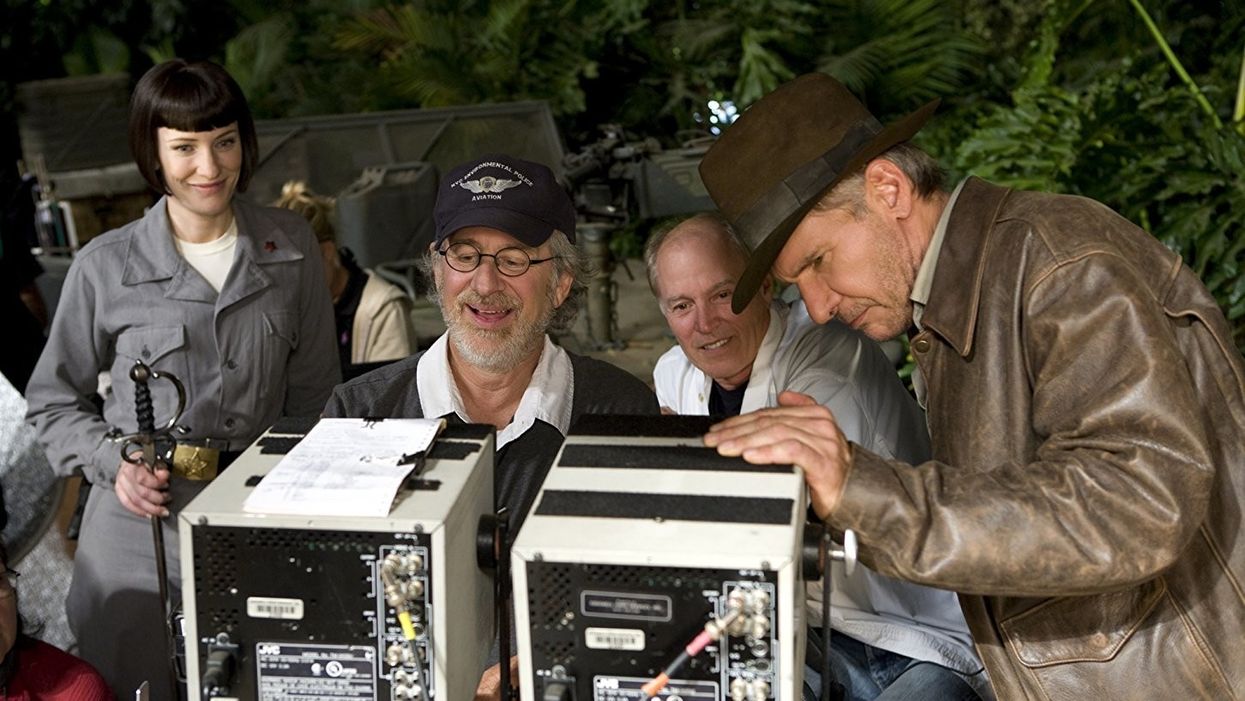10 Filmmaking Tips from Steven Spielberg
If you were going to take advice from one modern director, Steven Spielberg seems like a great option.

You know his name and his resume, but let's give you a refresher. Steven Spielberg is the Academy Award-winning director of movies like Schindler’s List, Jurassic Park, E.T. the Extra-Terrestrial, Jaws, Raiders of the Lost Ark, Saving Private Ryan, Close Encounters of the Third Kind, and many more. He’s considered one of the all-time great directors. He's someone who values cinema and storytelling.
Luckily for us, Outstanding Screenplays put together a list of his top 10 pieces of advice for writers and directors.
Let's take a look together.
10 Filmmaking Tips from Steven Spielberg
1. Fight for and stay devoted to your original idea. Write the screenplay from that idea.
The only thing that matters is the creative process.
It's not always easy to stick to your guns and to accomplish what you set out to do, but you won't become a better filmmaker just kicking through the first act of your screenplays. You have to finish that draft, rewrite, polish, and see what you can get on screen. The process is tough, but trust it.
2. When you have a dream, it often doesn’t come at you screaming in your face. Sometimes a dream almost whispers.
Listen to the whisper.
You know that little voice inside your head? It's telling you how to operate and what to do next. Inspiration doesn't always bang around, sometimes it sneaks up on you when you least expect it. It's time to trust yourself.
3. Learn from your predecessors. Not just the recent ones, but go way back to black and white films.
So many people don't have a basis for Hollywood history. When you get stuck in an idea or with a shot you're planning, it helps to drift back to the classics to see how the people who came before you tackled that very issue.
Know your history.
4. Storytelling and emotion always come first. Business and cinematography are always second.
What shot do you need to tell the story? The ones that service what is happening inside the emotional narrative. Think about that before you try something that might distract from the scene.
5. If you want to make movies, make movies. All the tools are completely available today. There is no excuse.
You can shoot something on your phone. You can edit with the software on your laptop. There's nothing like trying it yourself first on these smaller stages and then seeing if it translates later.
Go out and do it.
6. If you fail with a project, don’t let it affect you. Throw yourself into work and start the next project immediately.
Everyone fails, even Spielberg. Failure is part of the business. The defining moments are what you do after that failure to revamp yourself, and how you succeed on your next job.
7. In movies, there is only one character-defining moment. But in life, you face them every day.
Listen to your internal voice and intuition when facing those moments.
This goes back to trusting that process. Life is going to throw wild things at you now and again. You have to be willing to roll with the punches and develop along with the hurdles. They get easier and you'll be able to predict them as they come.
8. When learning your craft it’s okay to be derivative and influenced by the works of others.
But at some point, you must find your own voice. Because you are original.
Your voice and experience is your most valuable asset. You can begin a careering mimicking people, but you sustain one telling the world what you have to offer. What are your truths and messages?
9. Create suspense and fear in the audience by not showing the actual threat for some time.
The imagination of the audience is scarier than the actual thing you show.
Think about how Spielberg used a broken shark in Jaws to let the audience's imagination run wild.
You don't have to have things perfect on-screen, sometimes you can play on what is expected or unseen to surprise people. The audience wants to be entertained.
10. Sometimes an idea comes like a gift from the heavens and it hits you like a ton of bricks.
When that happens, start writing scenes on the spot and put the story together immediately.
Carry a pen everywhere you go. You never know when you're going to want to put ideas onto napkins or jot yourself an email on your phone. When inspiration strikes, be ready to chase it.
What else have you learned from Spielberg? Tell us in the comments!
Source: Outstanding Screenplays















